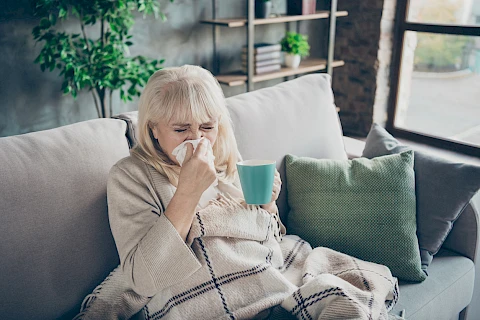
Seasonal allergies can pose significant challenges for everyone, but they can be particularly difficult for seniors. When the leaves change and the air cools, many older adults may find themselves dealing with sneezing, coughing, and other uncomfortable symptoms. Managing these allergies helps to maintain overall health and well-being. Here are some practical tips to help seniors handle seasonal allergies more effectively.
Identifying Allergy Symptoms
You need to recognize the signs of seasonal allergies to manage them properly. Common symptoms in seniors include:
- Sneezing
- Runny or stuffy nose
- Itchy eyes, nose, or throat
- Coughing
- Fatigue
Sometimes, it can be tricky to differentiate between allergies and other respiratory issues such as colds or infections. Unlike colds, allergies typically do not cause fever or body aches. However, if symptoms persist or are severe, you need to seek medical advice to get an accurate diagnosis.
Creating an Allergen-Free Home Environment
One of the best ways to handle allergies is by creating a home environment free of allergens. Reduce indoor allergens by regularly cleaning to minimize dust, mold, and pet dander. Use vacuum cleaners with HEPA filters to trap small particles. Wash bedding in hot water weekly to eliminate dust mites. Consider using air purifiers and dehumidifiers to keep the air clean and dry. Opting for hypoallergenic bedding and furniture can also help reduce exposure to allergens.
Outdoor Precautions
Even with a pristine home environment, outdoor allergens can still pose a problem. Check pollen forecasts daily to help plan outdoor activities around lower pollen counts. Wear protective gear such as masks and sunglasses to prevent allergens from entering your airways and eyes. It's also beneficial to schedule outdoor activities for early morning or late in the day when pollen levels are typically lower.
Dietary and Lifestyle Adjustments
Certain lifestyle and dietary changes can help alleviate allergy symptoms. Foods rich in antioxidants, such as fruits and vegetables, can help reduce inflammation. Staying hydrated is essential, as it helps thin mucus and keeps the respiratory system moist. Regular exercise boosts the immune system and helps the body cope better with allergens. If you're starting a new form of exercise, you should always check with your doctor first. A balanced diet contributes to overall well-being and can lessen the impact of allergies.
Working With Healthcare Providers
You need to consult healthcare providers to effectively manage allergies. Discuss all symptoms with your doctor to determine the most appropriate treatment. Over-the-counter medications like antihistamines can be helpful, but your doctor may prescribe stronger medicines if needed. Allergy testing can identify specific allergens and guide treatment. Immunotherapy, or allergy shots, may also be an option. Keep a diary of symptoms and treatments to monitor what works best. This information can be invaluable during medical consultations.
Senior Helpers Southeast Michigan Can Provide Care for Seniors With Seasonal Allergies
Managing seasonal allergies involves recognizing symptoms, creating a safe home environment, taking outdoor precautions, and making beneficial dietary and lifestyle changes. Don't forget the importance of working with healthcare providers for personalized treatment plans. These steps can significantly improve the quality of life for seniors dealing with allergies.
For personalized assistance and senior care services in Farmington Hills, West Bloomfield, Westland, Southfield, and Canton, contact Senior Helpers Southeast Michigan. Taking proactive steps today can lead to better health and a more comfortable season ahead.